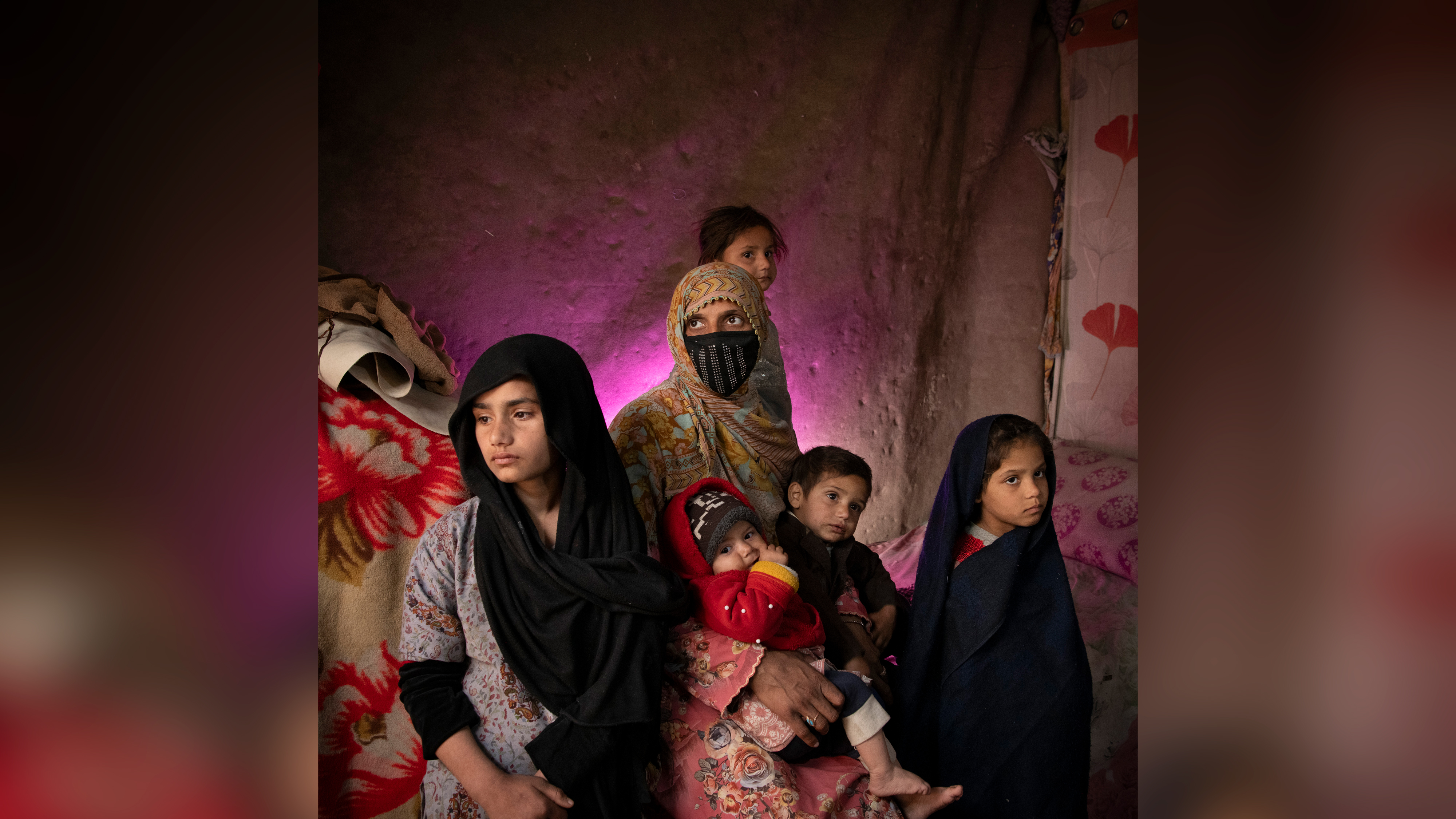
The Carmignac Photojournalism Award has released the winner of its 14th edition entitled 'No Woman’s Land – An Intimate Look Into the Battle for Women’s Rights in Afghanistan.
This year’s focus is on the condition of women and girls in Afghanistan following the return of the Taliban to power in August 2021.
The Fondation Carmignac provides the laureate with financial and human resources to carry out their project and produces both a dedicated website and a travelling exhibition, aiming to shed light on the crises and challenges which the contemporary world is facing.
The award was granted to the reporting project proposed by the duo of Canadian-Iranian photojournalist, Kiana Hayeri, and French researcher Mélissa Cornet. Their project was produced over a period of six months, with the support of the Fondation Carmignac.
Their groundbreaking work will be unveiled today at the international photojournalism festival Visa pour L’image in Perpignan, France.
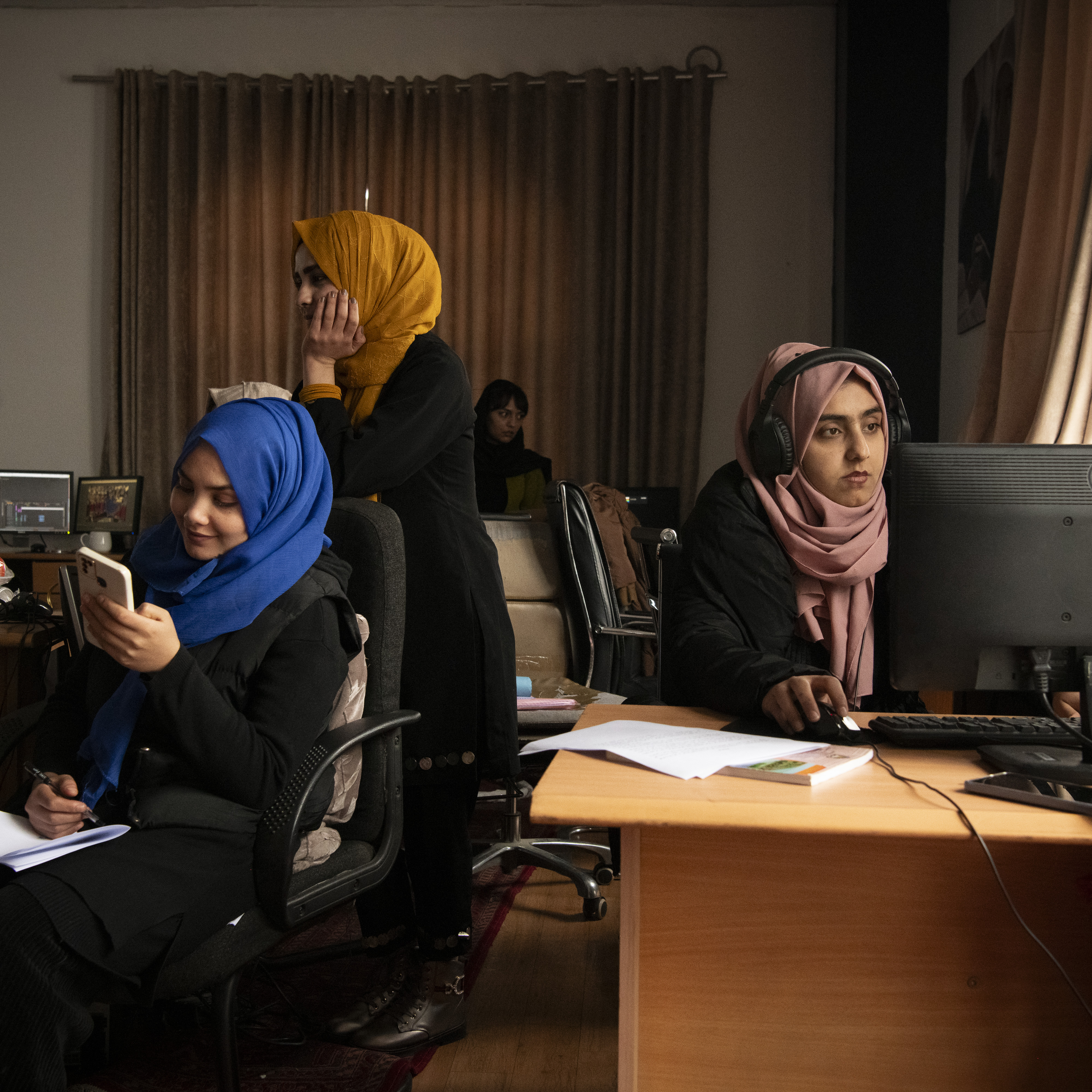
Over the course of the last six months, Hayeri and Cornet travelled through seven provinces in Afghanistan to investigate the conditions of women and girls living under Taliban rule, which according to Amnesty International’s research, could constitute a crime against humanity of gender-based persecution.
The Taliban took control in 1996, and were ousted from power in 2001, but since the shambolic retreat of US troops from Afghanistan, the Taliban swept in and easily regained power in 2021, focusing much of their manifesto on reducing women to walking ghosts.
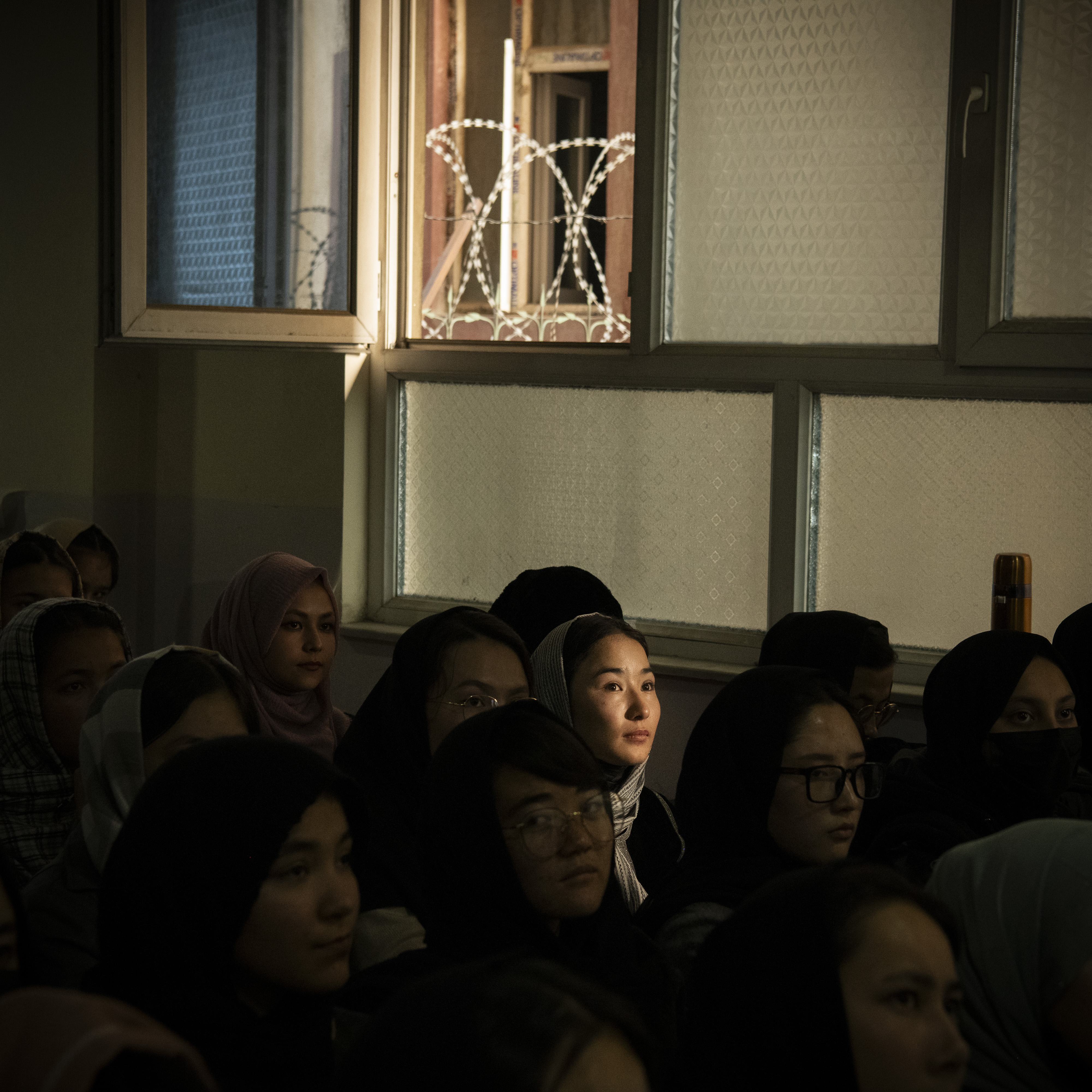
For most people thinking of Afghanistan over the past 30 years, images of full body burqas, or maybe the famous National Geographic photograph of ‘the Afghan girl’, taken by Steve McCurry.
During their previous reign, the Taliban enforced their version of Islamic Sharia law, banning women and girls from getting any form of education, working, accessing healthcare, leaving the house without a male chaperone, being involved in politics, showing any skin in public, among other restrictions.
This has not always been the way. Prior to the rise of the Taliban, women in Afghanistan were protected under the law, and increasingly afforded rights in Afghan society. Getting the vote in 1920, roughly around the same time as the US and a couple of years after the UK, by the 1960s the constitution provided equality for women.
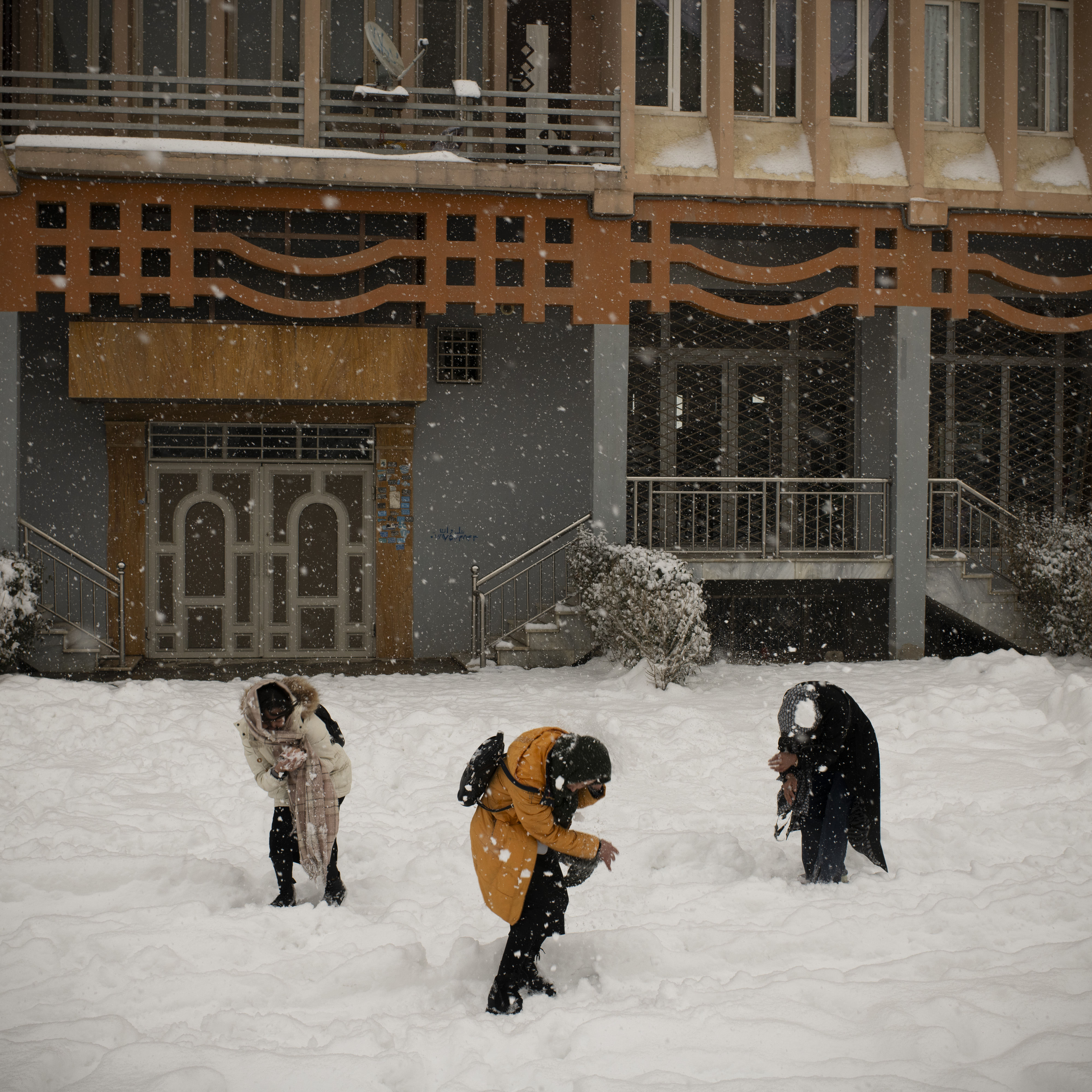
By 1977, women comprised over 15% of Afghanistan’s highest legislative body, and its estimated by the early 1990s, 70% of schoolteachers, 50% of government workers and university students, and 40% of doctors in Kabul were women.
These ‘laws’ have come back in full force since 2021, and last week, the Taliban published new laws on “vice and virtue” that require women to completely cover their bodies, including faces at all times.
These laws also ban women from speaking, singing, or reciting aloud in public.
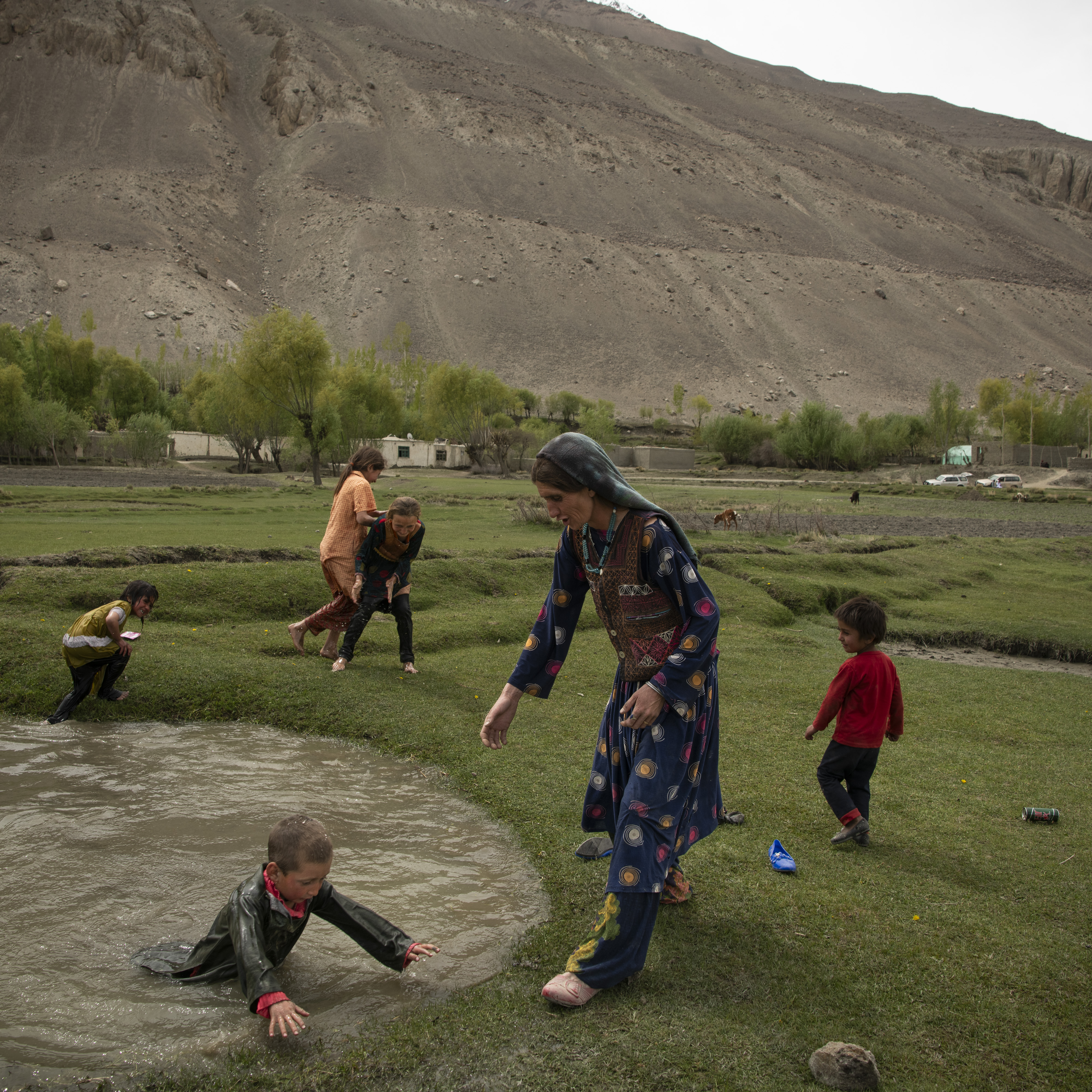
As part of their photojournalist project with the Fondation Carmignac, Hayeri and Cornet met with more than 100 women and girls; journalists and activists fighting their own war, mothers watching history repeat itself for their daughters, as well as LGBTQI+ individuals.
Through their work they documented how the Taliban have essentially erased women from society.
The most disturbing discovery that Hayeri and Cornet made was that since August 2021, there is a general loss of hope among women that things will ever improve, as access to education, society, politics, and healthcare have disappeared.
The winning project from the 13th edition focused on e-waste in Ghana, and applications for the 15th edition of the award are now open, with a focus on the violations of rights caused by illegal overfishing in Southeast Asia.
If this has inspired you to take your own photographs, take a look at our guides to the best cameras for beginners, the best cameras for professionals, and the best travel cameras.







